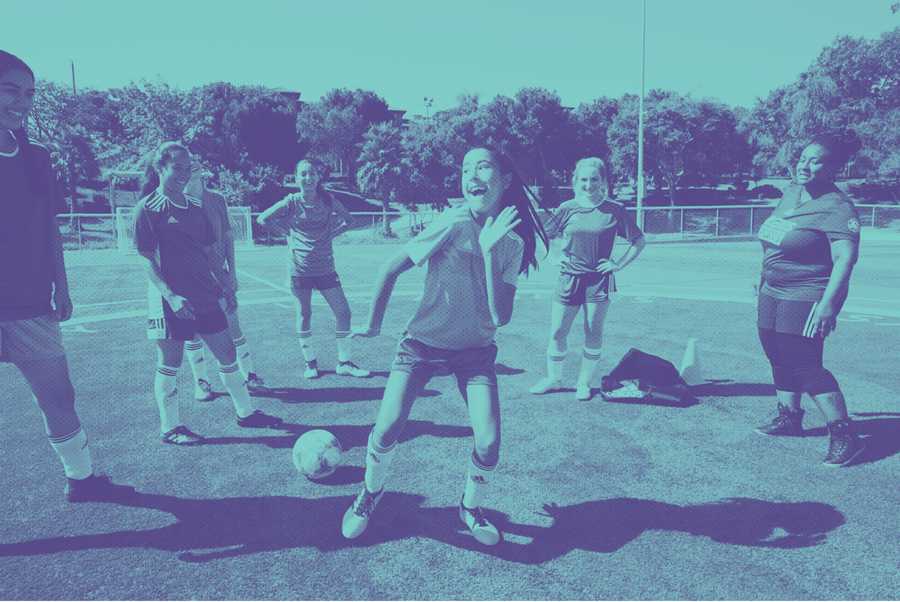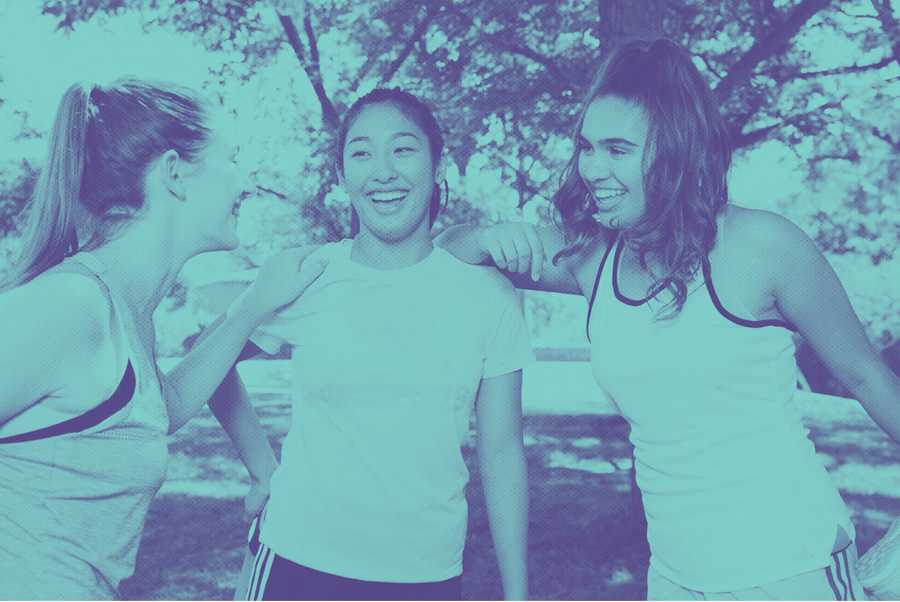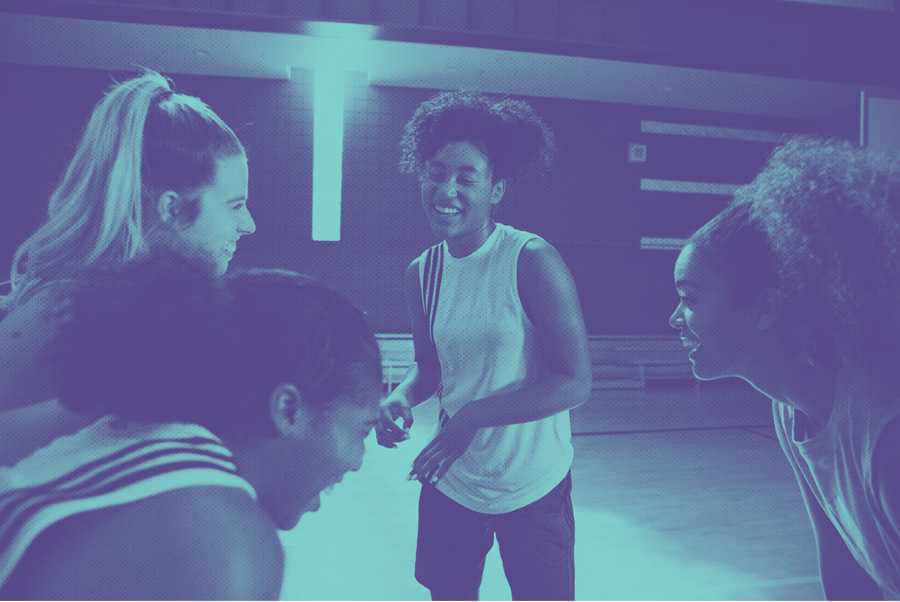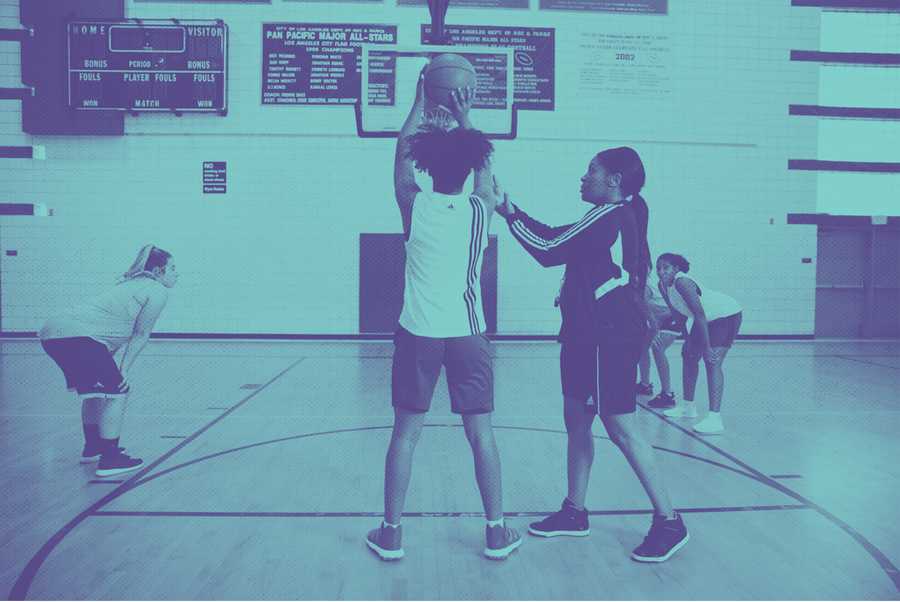Coaches set the tone for how girls interact with each other on and off the field.
One of the best things a girl can take away from sports is a friendship that lasts a lifetime.
PLAY VIDEO
We often assume that when girls are on a team, they naturally make friends, but this doesn’t always happen. As a coach, you can encourage the development of friendships, which is especially important for girls who may have a harder time connecting with new people.
The goal is to increase the number of social relationships among the athletes. If a girl has no friends, try to help her leave with one friend. If a girl has some friends, try to help her leave with more friends. And if she has many friends, help her strengthen those friendships.
So how do you encourage these relationships?
Pair
Pair girls together for a session or a season.
Give
Give girls opportunities to be the focus of attention among their peers.
Play
Play games where making connections is the point.
Create
Create positive traditions on and off the field.
So why are relationships important?
Because the team friendships and coach-to-athlete support can extend far beyond the field.
These positive adult-to-child relationships also have long-lasting impacts because they build up different protective factors that can increase a child’s ability to be resilient when facing challenges in life.
Attendance in school:
For those who struggle to find connections, a caring adult figure within the school environment can help make it a positive experience. For those who struggle to find connections, a caring adult figure within the school environment can help make it a positive experience.
Participation in group activities:
Groups help to provide identity and ownership and can be great places to meet caring adults that help guide positive experiences.
Understanding strengths and assets:
Some kids need guidance to recognize their strengths and understand who they are and how they relate to the world around them.
Problem-solving skills:
Some kids may need the help of an adult to sharpen their ability to solve problems.
Self-efficacy:
Many kids have a hard time saying “I can” when they face failure and obstacles. They need an adult to help encourage and build efficacy.
Belonging to a group or community:
Adults leading groups and communities can help create a support structure and belonging for kids to become more resilient.
Contribution to something meaningful:
Adults can help empower and support kids as they pursue opportunities to contribute to something challenging and meaningful.
High expectations:
Caring adults are key to setting and maintaining high expectations and teaching kids the skills to be accountable as they move toward their goals.
Healthy family structure:
Some families lack the important support infrastructure that kids need, so kids may look toward other adults and peers for support.
A note on cultivating healthy competition:
Reconciling Competition
Competition is a kind of relationship between an athlete and her opponent, but unlike many relationships, it’s not about forging bonds and connecting. Competition is about winning.
Girls who care deeply about how their behavior affects other people, or who tend toward empathy, may struggle with this dynamic. They may wonder: How can I be competitive and still be considerate? How can I be nice if I accidentally knock someone down to score a goal? [18]
The answer, as with so much else, is context. Competition is essential to sports, and in the unique, safe space that we create for sports, one can be competitive while still being considerate.
How competition helps girls
Competition is a part of playing sports. Sports are an excellent arena in which to teach girls the competitive dynamics that occur in other aspects of life, such as the business world. [19]
You can help girls be more competitive. To do so, you have to give them opportunities to practice competing. It may be hard for some girls to accept the “me versus you” nature of a competition, but competitiveness can be taught and practiced. [20]
''We care about winning, and we use competition as an incentive, but we’ve found a way to be friendly rivals. We have an ethical model that's compassionate as well as competitive.'' —Mariah Burton Nelson, author of Are We Winning Yet? How Women are Changing Sports and Sports Are Changing Women [21]
POWERED BY
Privacy Policy | Terms & Conditions | © 2019 adidas America Inc.
© UP2US 2019















